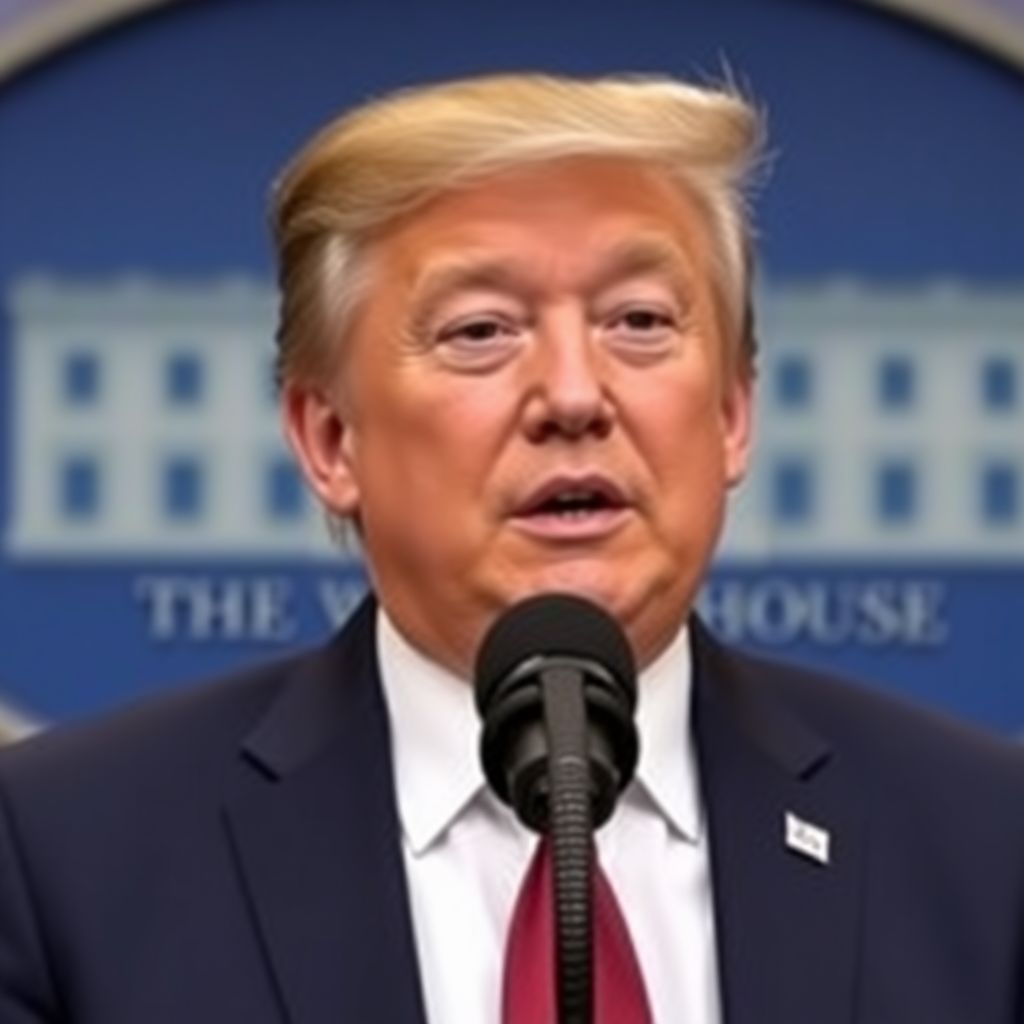The White House has strongly defended former President Donald Trump’s decision to pardon Binance founder Changpeng Zhao, insisting that the matter underwent an exhaustive legal and administrative vetting before reaching the president’s desk. White House press secretary Karoline Leavitt emphasized during a press briefing that both the Department of Justice and the White House Counsel’s Office were deeply involved in the review process, which she described as conducted with the “utmost seriousness.”
Leavitt clarified that Trump’s recent remarks on CBS’s “60 Minutes,” in which he claimed to have “no idea” who Zhao is, were intended to communicate that the former president had no personal ties or prior relationship with the crypto executive. “The president does not personally know Mr. Zhao,” Leavitt stated, “and any suggestion of favoritism is entirely unfounded.”
Despite criticism, Trump stood by the decision, portraying it as a move to correct what his administration views as an unjust prosecution. “The president is correcting that wrong,” Leavitt declared, “and he has officially ended the Biden administration’s war on the cryptocurrency industry.” She further claimed Zhao had been “over-prosecuted by a weaponized DOJ,” pointing to what she called overly aggressive legal action by the previous administration.
Changpeng Zhao, often referred to by his initials “CZ,” pleaded guilty in late 2023 to failing to implement adequate Anti-Money Laundering controls at Binance, in violation of the U.S. Bank Secrecy Act. Initially, federal prosecutors sought a three-year prison sentence. However, the presiding judge ruled that the proposed punishment was excessive and instead sentenced Zhao to four months behind bars, which he began serving in April 2024.
Zhao’s legal team, led by attorney Teresa Goody Guillén, argued that the charge was administrative in nature and did not warrant a lengthy sentence, especially considering Zhao was a non-violent, first-time offender. Many in the crypto community echoed similar sentiments, portraying the case as an example of regulatory overreach.
Speculation has swirled around Zhao’s connections to the Trump family’s crypto-related endeavors, particularly involving World Liberty Financial, a digital asset platform reportedly linked to a $2 billion investment project. Some reports suggested that Binance had provided technical assistance in developing a stablecoin for the Trump-affiliated venture. However, these claims have been publicly denied by Binance CEO Richard Teng, who dismissed them as baseless.
An unaired portion of Trump’s “60 Minutes” interview, later revealed through a transcript, showed CBS anchor Norah O’Donnell pressing the former president about the potential appearance of corruption surrounding the pardon. Trump deflected the question, stating, “I’d rather not have you ask the question,” before pivoting to tout the U.S.’s leadership in the global crypto industry. He added that under his leadership, America had become “number one in crypto,” and he was determined not to let countries like China surpass it.
Trump also downplayed any personal involvement in the digital asset space, noting that his sons are more engaged in cryptocurrency than he is. “I know very little about it,” he admitted, “other than one thing—it’s a huge industry.”
The controversy around Zhao’s pardon has reignited broader debates over the politicization of presidential clemency powers and the role of cryptocurrency in U.S. economic policy. Critics argue that issuing a pardon so soon after a conviction, particularly in a high-profile financial crime case, sets a risky precedent. Others see it as a strategic move by Trump to position himself as an ally of the blockchain and crypto sectors ahead of upcoming elections.
Legal experts point out that presidential pardons, while constitutionally permitted, are rarely used in cases involving recent guilty pleas and active sentences. The speed and timing of Zhao’s pardon have thus raised eyebrows, especially in light of the broader scrutiny facing the crypto industry from regulators and lawmakers.
Some analysts suggest that the pardon reflects a shift in how political leaders view crypto. Rather than treating it solely as a regulatory challenge, Trump’s team appears to be embracing it as a vital economic sector with strategic importance. This contrasts sharply with the Biden administration’s more cautious and enforcement-driven approach to digital assets.
The case also underscores growing partisan divides around cryptocurrency regulation. While Democrats have typically favored tighter oversight, many Republicans, including Trump, have begun framing pro-crypto policies as part of a broader agenda to foster innovation and resist what they see as government overreach.
With the 2024 presidential campaign underway, crypto is becoming an increasingly politicized issue. Trump’s latest actions suggest he may be courting voters from the tech and financial innovation sectors, as well as younger demographics more engaged in digital finance.
Looking ahead, Zhao’s legal journey may not be over despite the pardon. Some legal scholars argue that a presidential pardon does not necessarily eliminate civil or regulatory penalties, nor does it insulate a recipient from further investigation should new evidence emerge. However, for now, Zhao is free, and his supporters view the pardon as a vindication.
Whether this move will yield political dividends for Trump or provoke further backlash remains to be seen. But one thing is clear: the intersection of crypto and politics is deepening, and Changpeng Zhao’s case may serve as a pivotal moment in that evolving relationship.

